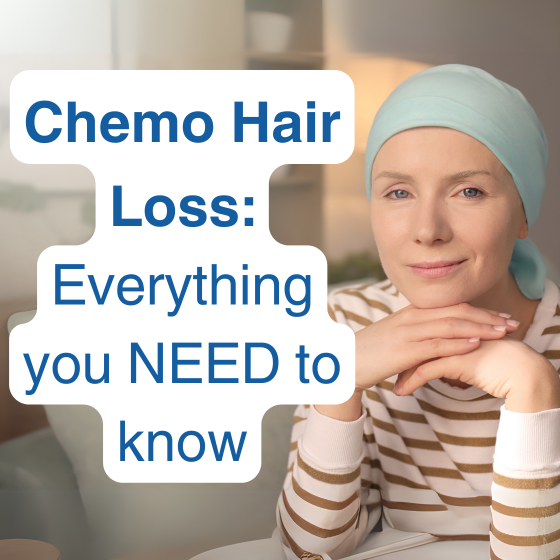
Hair loss during chemotherapy is one of the most common and emotionally challenging side effects patients experience. It can feel overwhelming, but knowing what to expect and how to manage it can help make things easier.
Why does chemo cause hair loss?
Chemotherapy targets rapidly dividing cancer cells, but unfortunately, it also affects fast-growing healthy cells, including hair follicles. This leads to hair thinning or loss on your scalp, eyebrows, eyelashes, and even body hair. The severity of hair loss depends on the specific chemo drugs, their dosage, and your individual response.
Different chemo drugs, different outcomes
Not all chemo causes complete hair loss. Drugs like paclitaxel (Taxol), doxorubicin (Adriamycin), and docetaxel (Taxotere) typically cause significant hair loss. Other drugs, such as methotrexate and cisplatin, often lead only to mild thinning. Targeted therapies and immunotherapies usually cause milder hair thinning rather than complete baldness.
Can you prevent hair loss?
While you can’t entirely prevent chemo-related hair loss, some methods can reduce it:
Cold caps (scalp cooling): Cold caps worn during chemo sessions significantly reduce hair loss for many people. By cooling the scalp, less chemo reaches the hair follicles. Studies confirm cold caps help about 50-60% of people retain at least half their hair.
Gentle hair care: Using mild shampoos, avoiding harsh styling products, minimizing heat styling, and being gentle with brushing can help preserve your existing hair longer.
Supplements like biotin or specialized shampoos haven’t been proven effective for preventing hair loss during chemo, so always discuss supplements with your oncologist first.
Hair regrowth: when and how?
The good news is hair usually regrows after chemo. Expect initial hair growth about 4-8 weeks post-treatment, starting as soft fuzz. Within 3-6 months, your hair typically becomes thicker and more noticeable. It might initially have a different texture or color, often becoming curly or grey, but these changes usually revert to normal within a year.
Here’s my advice to support hair regrowth:
Gentle care: Avoid harsh styling, chemicals, or excessive heat.
Nutrition: Eat a balanced diet rich in protein, vitamins, and minerals to support healthy hair growth.
Minoxidil (Rogaine): Topical minoxidil applied after chemo can speed up hair regrowth. Use only after treatment ends.
Practical hair care tips
Before chemo:
Consider cutting your hair shorter to ease the transition.
Look into wigs or head coverings early, so you’re prepared if needed.
During chemo:
Use mild shampoos and avoid daily washing.
Gently pat hair dry; avoid heat styling and harsh products.
Protect your scalp from the sun and cold with hats or scarves.
After chemo:
Continue gentle hair care to protect new hair growth.
Avoid harsh chemical treatments until hair is stronger and at least 2-3 inches long.
How to cope emotionally
Hair loss can be distressing. Here’s how to handle the emotional side:
Allow yourself to grieve: Please know that it’s okay to feel sad or frustrated, and EVERYONE feels like that, especially since hair is a part of your identity. Please be patient and remind yourself that this is a temporary sacrifice in order for you to be healthy and cancer-free in the future. The hair will come back.
Seek support: Connect with cancer support groups or counselors specializing in cancer-related concerns.
Take control: Some patients prefer proactively cutting or shaving their hair before significant loss occurs. This can provide emotional relief by giving you control over the situation.
You’re Not Alone
Losing hair during chemo is tough indeed. Please remember that your hair loss doesn’t define you, and there are many ways to manage this temporary hurdle with less distress. Preparing practically, and using proven coping strategies can help ease both the physical and emotional challenges.
If you’re ready to take control of your health and incorporate expert nutrition and exercise that don’t just improve your fitness but also supports your cancer treatments and reduces their side-effects, start working with me today. I create personalized exercise and nutrition programs that will fit into your schedule and empower you to win back your health. Don’t settle for generic advice. You deserve a plan that considers every aspect of your condition, from fighting cancer cells to minimizing the side effects of treatments. This is your opportunity to invest in yourself, your health, your energy, your future.
For more insights like this and practical recommendations you can apply right away, subscribe to my newsletter.
